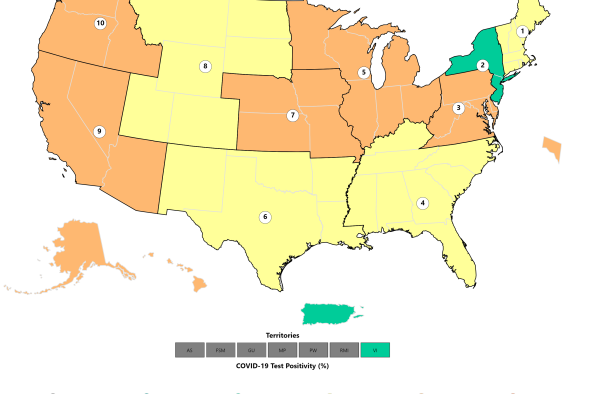The U.S. Food and Drug Administration (FDA) has given packaged golden raisins the highest risk classification after they were recalled due to concerns over undeclared ingredients.
The FDA has warned of potentially "life-threatening" allergic reactions for those at risk and classified the recall as "a situation in which there is a reasonable probability that the use of, or exposure to, a violative product will cause serious adverse health consequences or death."
On August 26, New Jersey-based food manufacturer Sunco & Frenchie LLC recalled two batches of their 10oz Terrafina Golden Raisins due to fears that they may contain undeclared sulfites. The raisins were distributed in New York stores and are packaged in a clear plastic square container with a bright orange label (pictured below).
Newsweek reached out to Sunco & Frenchie LLC via email for comment.
The recall was initiated after routine sampling by the New York State Department of Agriculture and Markets Food Inspectors. Subsequent laboratory analysis revealed the presence of sulfite in the product, which was not advertised on the labels.
The affected products all have a UPC number of 847938001385 and "Best If Used By" dates of "05/2025" or "08/2025." Lot numbers for the recalled raisins are GRA240602 and GDR240901.
Golden raisins and other light dried fruits are often treated with sulfur dioxide and sulfites to stop the fruit from darkening during the drying process. The chemical is used more generally in food manufacture as a preservative. Sulfites also occur naturally in wine and many foods like tomatoes, onions, eggs, garlic and maple syrup.
For most of us, the presence of sulfites is not a major health concern. However, sulfite exposure to those with allergies and sensitives can result in asthma attacks and, in rare cases, anaphylaxis. This is a potentially life-threatening reaction that hinders our breathing and can cause our blood pressure to drop dangerously low, limiting blood flow to our vital organs.
Anaphylaxis can be treated using an epinephrine injection—also known as an EpiPen. Epinephrine is a naturally occurring molecule in our bodies that is more commonly known as adrenaline, the hormone that regulates our fight-or-flight response. This hormone plays a crucial role in controlling the contraction and relaxation of our muscles, as well as regulating our blood flow, helping to reverse the dangerous symptoms of anaphylaxis.
If you suffer from severe allergies, it is important to carry your epinephrine injection with you.
Luckily, no illnesses have been reported in relation to the recalled raisins. However, the FDA has urged consumers not to consume the product and to return it to the place of purchase for a full refund.
Is there a health problem that's worrying you? Let us know via health@newsweek.com. We can ask experts for advice, and your story could be featured in Newsweek.
Disclaimer: The copyright of this article belongs to the original author. Reposting this article is solely for the purpose of information dissemination and does not constitute any investment advice. If there is any infringement, please contact us immediately. We will make corrections or deletions as necessary. Thank you.



